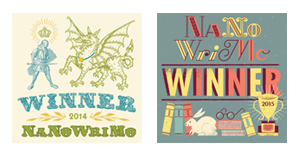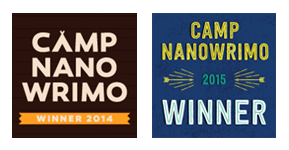 If you’re blessed, as I am, to have some of the best critique partners…, you undoubtedly realize the benefit of having a watchful pair of eyes to run over your manuscripts, a merciless tongue to point out the weak points, and a gentle (and sometimes not-so-gentle) touch to encouragingly push you back onto your feet for another go. ~ K.M. Weiland
If you’re blessed, as I am, to have some of the best critique partners…, you undoubtedly realize the benefit of having a watchful pair of eyes to run over your manuscripts, a merciless tongue to point out the weak points, and a gentle (and sometimes not-so-gentle) touch to encouragingly push you back onto your feet for another go. ~ K.M. Weiland
I currently participate in two critique circles. One is a mixed-genre group of writers of different skill levels ranging from beginner to advanced. Half the writers are traditionally published, one a bestselling author with one of the big houses. I am blessed, as K.M. Weiland says, to be a part of this diverse group. In just a few months of giving and receiving feedback, my writing improved more than it had in the previous year. It was not my fantastic critiquing skills (far from it) that won a spot for me in this group, but the recommendation of a fellow member of a now defunct critique circle. A good lesson in not burning bridges.
My other critique circle is genre-specific, specializing in science fiction and fantasy. Though we have different writing styles and target audiences, we all share: a similar skill level; a publishing path with small, traditional presses; and a love of speculative fiction. We often have long discussions about the writing life, marketing, and the finer points of such things as map making and world building.
Benefits of a (Good) Critique Group
From my experiences in a handful of critique groups (both good and not), I’ve found the typical benefits of being a member include:
- receiving feedback that reveals the strengths in my writing, and weaknesses such as overused words, passive construction, and cliché characters
- learning to take criticism with the right attitude
- becoming a better self-editor (examining someone else’s writing helps me recognize the flaws in my own)
- committing to have a submission ready on a regular basis keeps me motivated to write and edit
- encouragement to continue writing and striving to improve (the right group will make you want to go home and get back at it)
- learning better or different ways to deal with writing elements, such as characterization, setting, and dialogue
Benefits of a Genre-Specific Critique Group
It makes sense that someone who writes in a certain genre also reads in that genre. In my opinion this is the greatest benefit to joining a focused critique group. Writers should be readers, and readers make the best writers. I hope I always have a seat in the mixed-genre circle, but until I joined the speculative fiction group, I missed the camaraderie of a shared love of this genre. Other benefits include:
This group understands the genre, they will “get it” (or not) and give appropriate feedback:
- Sci-fi and fantasy readers know the truth will be revealed in time. They are more willing than most types of readers to “wait for it” in a future or fantastical world. Terms such as FTL (faster than light) don’t need explanation, and magic systems (if done correctly) are readily accepted.
- In a romance story, if there is no happily ever after or the couple doesn’t get together in some way at the end, beware the wrath of the romance reader.
- A horror story should scare the reader, or at least induce goose bumps.
- Historical fiction readers expect a time period to come alive (and they are likely to spot historical inaccuracies).
- A mystery must provide a puzzle to be solved, with plenty of clues throughout the story for the hero and the reader to keep guessing “whodunit.”
This group recognizes over-used or already-used plots specific to a genre. Our world can never have enough zombie-eats-human stories, but it would be good to know if your human-eats-zombie tale is a fresh twist on an old favorite. Editors and publishers are constantly on the lookout for unique stories.
This group can be a great guide to finding a target audience. Knowing who your reader is will help market your work, as will pinning down a specific sub-genre: paranormal romance vs. romantic suspense, dystopian vs. apocalyptic, medical thriller vs. police procedural. (For a good listing of writing genres, see Janice Hardy’s article “Is It a Genre That Starts With F? Breaking Down Genres.”)
A writer’s skill can only be improved to a certain degree by taking courses and studying how-to-write books. Eventually, constructive feedback from other writers is a necessity. A mixed-genre critique group is a good choice when you’re ready to take the next step toward improving the quality of your writing. Seek out a genre-specific group to focus on your particular reader. And if you can fit both into your life, do it.
One last point: Besides improving your craft and satisfying a reader’s thirst for a good story, learning to be a better writer through participating in a critique group will save you money when it comes time to submit your work to an editor who charges by the hour (or the page) to fix your mistakes.
What part do you think a critique group plays in a writer’s journey?
If you’d like some pointers on starting your own critique circle, check out “Critique Circle Basics: Setting Up an Effective and Efficient Support Group” by K. Kitts.
Image “3d Figure Playing Jigsaw Puzzle” courtesy of renjith krishnan / FreeDigitalPhotos.net






Sometimes just having a small group of people who will “get it” helps tremendously.
Absolutely. Being active in a fellowship that understands and appreciates the speculative fiction genre has strengthened my writing and continues to encourage me in my writing endeavors.
Are your groups face-to-face, or online? Do you have any advice on finding a critique group?
My critique groups are both face-to-face. If that’s what you’re looking for, you might want to start by contacting local writing groups. They should be able to point you to groups who are looking for members. If you prefer an online group that specializes in speculative fiction, you might want to check out Critters Workshop. They’re “a member of the Critique.org family of on-line workshops/critique groups, and is for serious writers of Science Fiction, Fantasy, and Horror. You get your work critiqued in exchange for critiquing the work of others…” It’s free except for the time it takes you to critique other manuscripts. I haven’t tried it yet, but I’m considering joining. You can find their About Page at http://critters.org/c/about.ht and their FAQ Page here: http://critters.org/c/faq.ht. Let me know how things work out.
A great post. I belong to a sci-fi/fantasy critique group and you are so right. I presented my perfect (unpublished) book to my critique group, and in a sweet way for the next year, I learned how amateur it was. Rewrote it several times, editing like a mad woman….and published! These groups are wonderful.
Critique groups are a “wonderful” necessity to improve our writing. And they’re easy on the pocketbook.